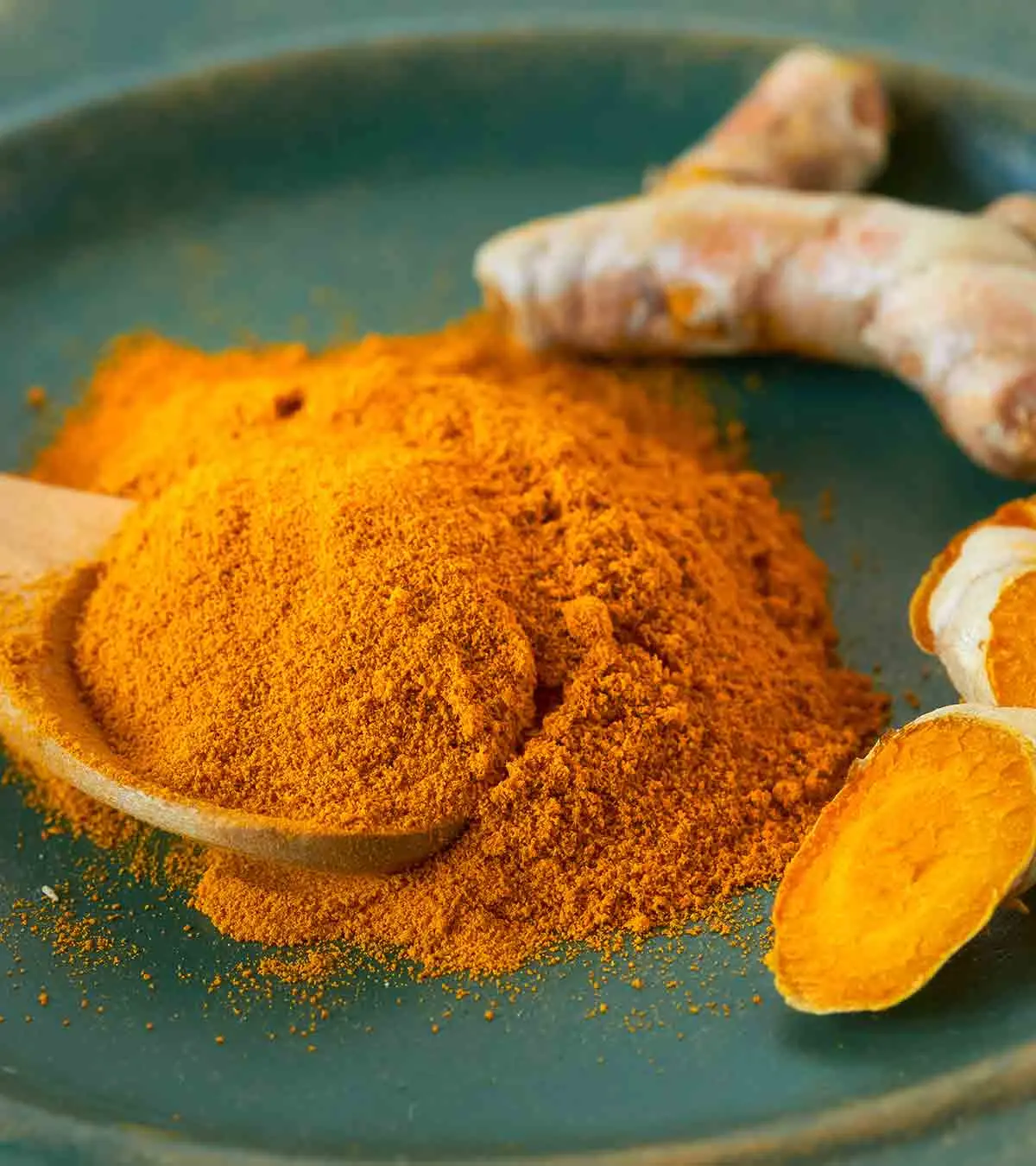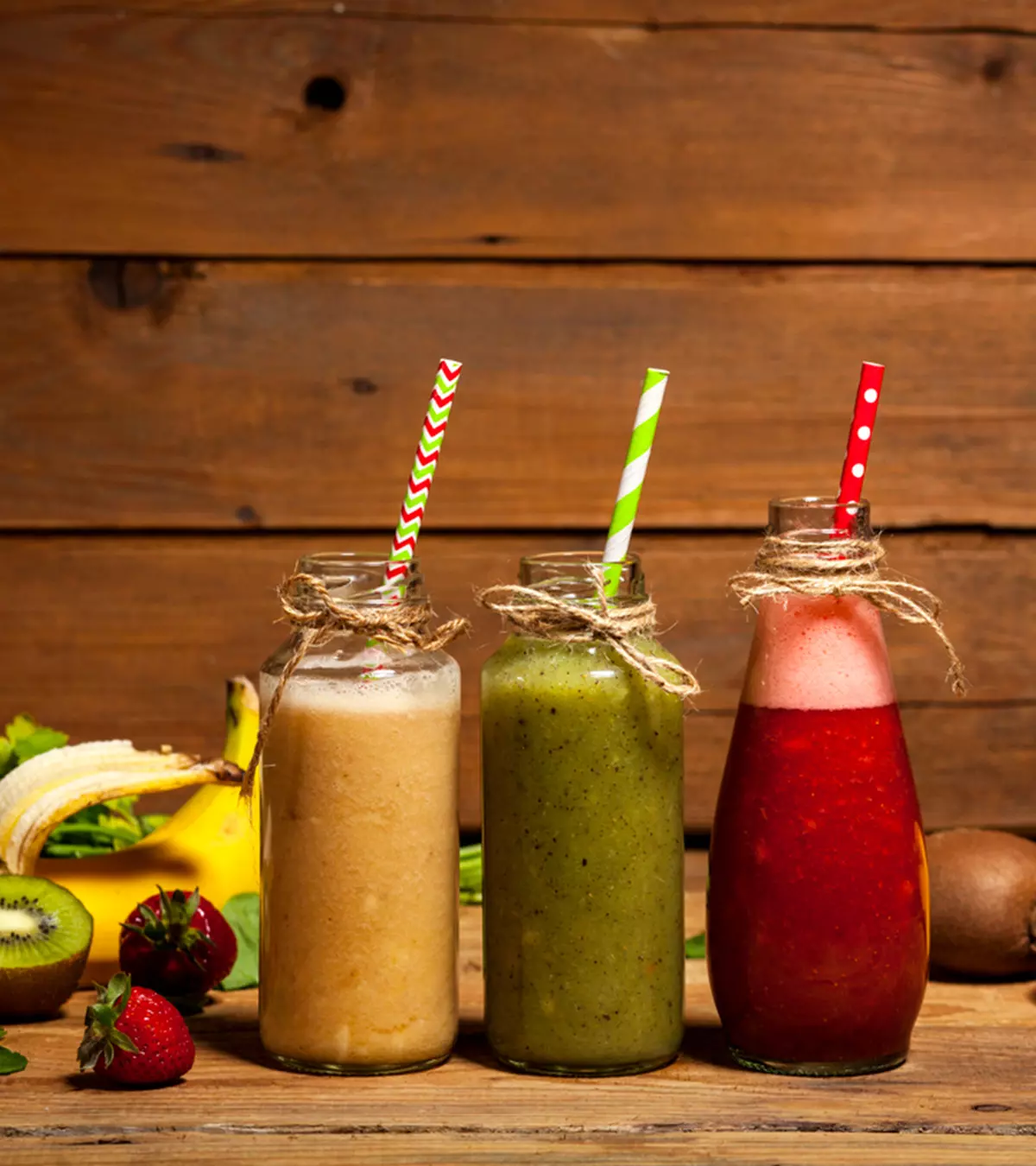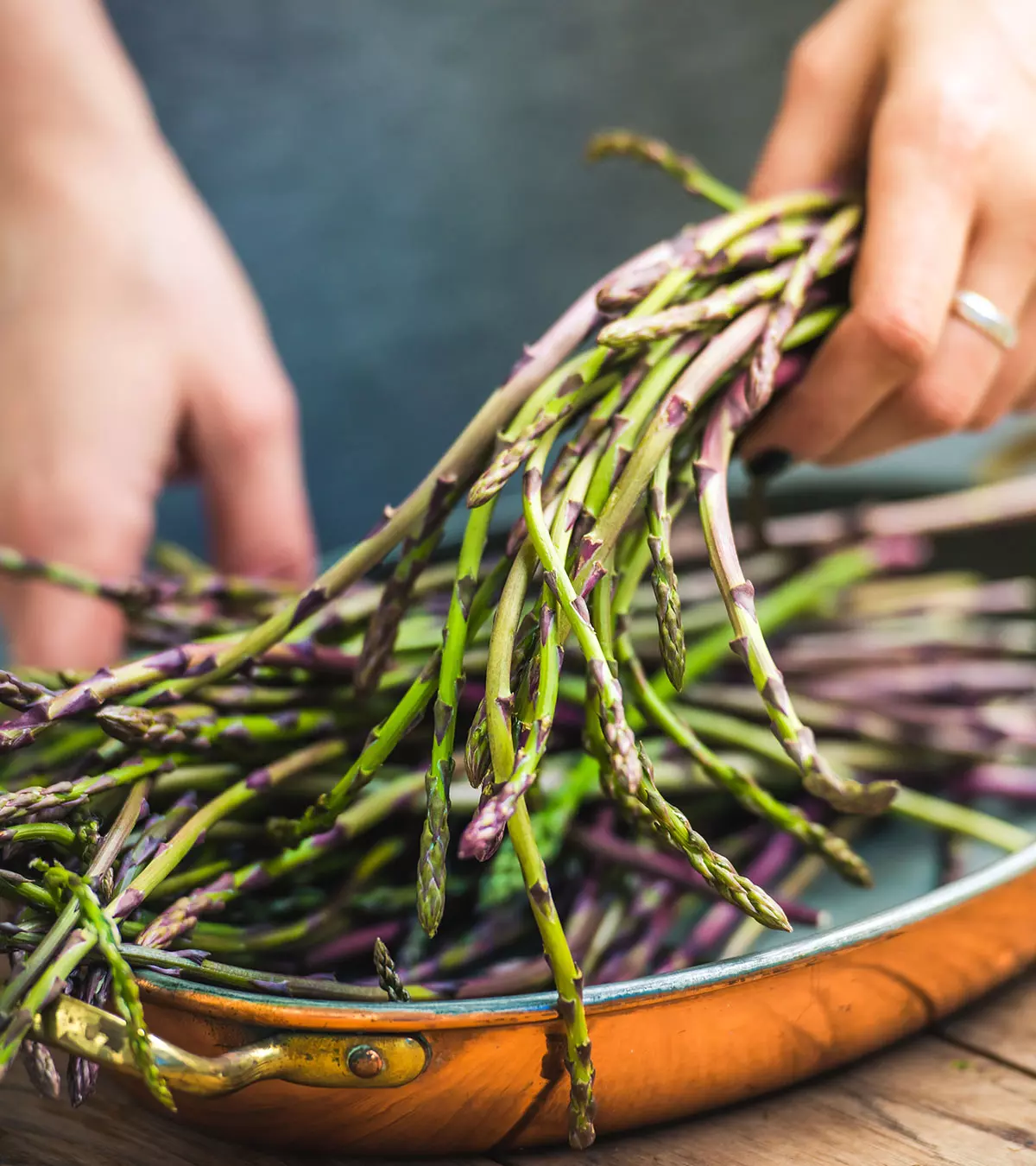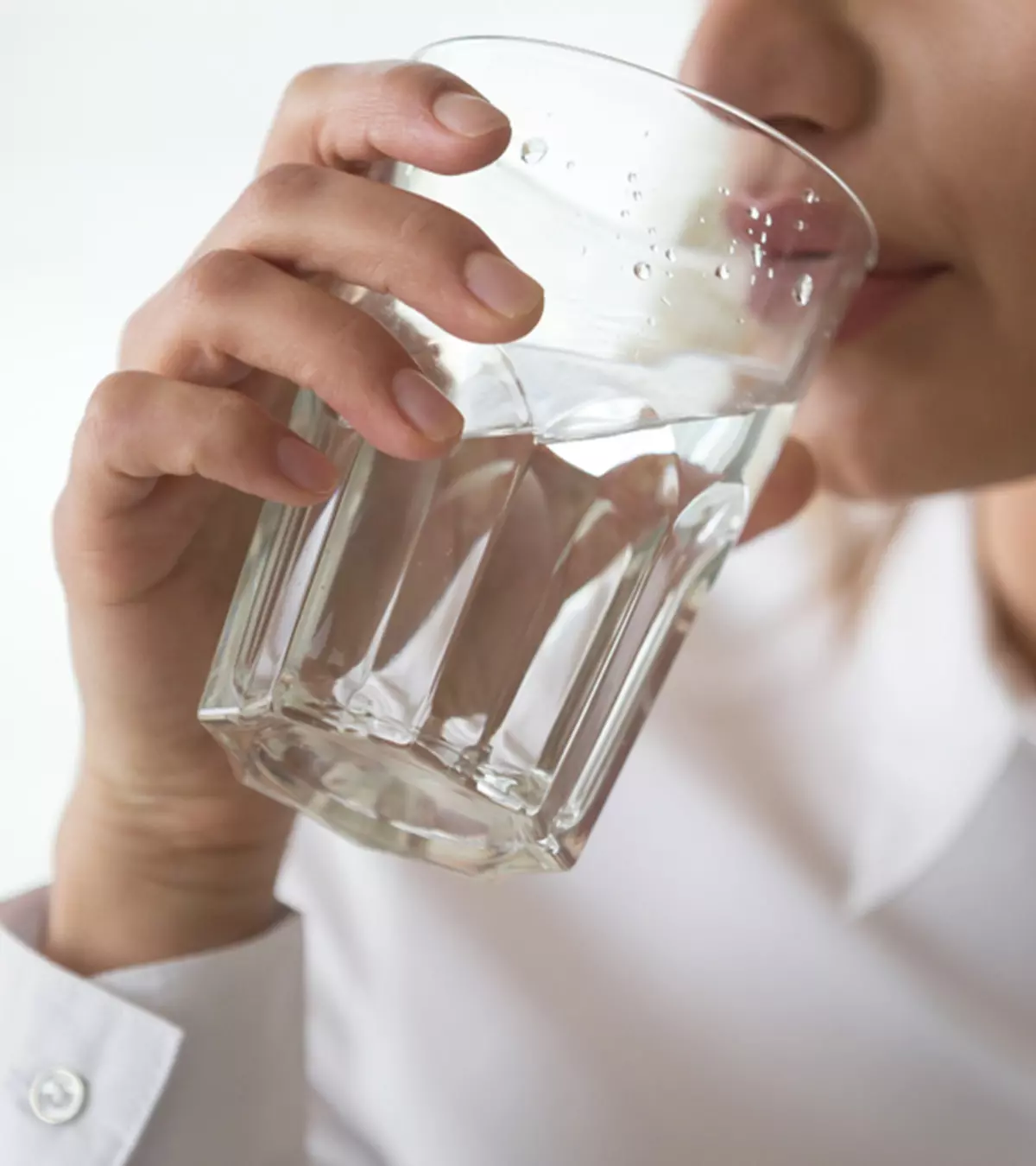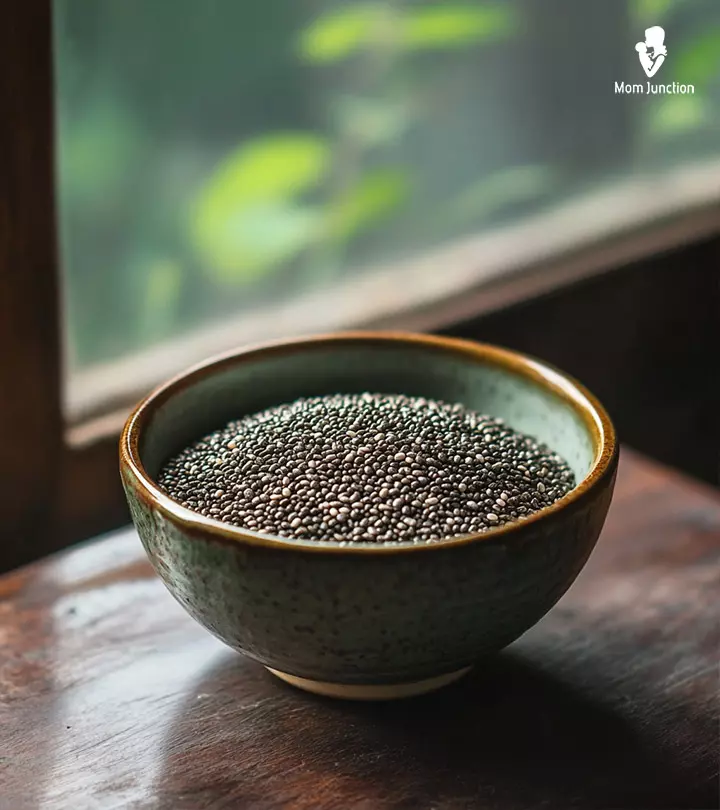
Image: Midjourney/ MomJunction Design Team
Chia seeds are a derivative of the Chia plant (scientifically known as Salvia hispanica), which belongs to the mint family. While nursing, most moms are concerned about the possible interactions between Chia seeds and breastfeeding such as effects on breast milk production and the safety aspects of consuming them. However, chia seeds have high nutritional values and reportedly possess potential nutraceuticaliRelated to nutritional products that are also known for their medicinal use and therapeutic properties, adding to the mother’s postpartum nutrition. Read this post to learn about the safety, benefits, and possible side effects of consuming chia seeds when breastfeeding.
Key Pointers
- Chia seeds are advised for nursing mothers as they are rich in omega-3 fatty acids and soluble fiber, which can be passed on to the baby through breast milk.
- Consumption of chia seeds contributes to cardiac health by lowering triglycerides, blood cholesterol, and blood pressure.
- Including chia seeds in a breastfeeding diet can help with weight loss and enhance gut and bone health.
- Chia seeds can be added to various dishes such as smoothies, oatmeal, and yogurt.
- Excessive consumption of chia seeds may cause gastrointestinal discomfort, medication side effects, or allergic reactions.
Is It Safe To Eat Chia Seeds When Breastfeeding?
Yes, chia seeds are considered safe to consume while breastfeeding. The US Food and Drug Administration (FDA) considers chia seeds as food (1).
As per the USDA Dietary Reference Intakes, a vegetarian nursing mom should include calories and high nutrient foods in her breastfeeding diet on a regular basis (2). Chia seeds contain calories and diverse nutrients that may contribute towards lactation support and newborn health. However, since the safety of chia seeds during lactation is not well-researched and not entirely established, it is good to talk to a nutritionist.
How Much Chia Seeds Can A Breastfeeding Mother Consume?
There is no safe intake limit recommended for a breastfeeding mother. However, keep the intake to a moderate amount of two to three tablespoons a day. If you want to have more, then consult a nutritionist.
Nutritional Value Of Chia Seeds
Chia seeds were one of the staple foods of Columbian and Mediterranean cuisine. About two tablespoons of dried chia seeds, which contain 30-33% fat, 26-41% carbohydrates, and 18-30% dietary fiber, have a nutritional value of 139 calories, four grams of protein, nine grams of fat, 12 grams of carbohydrates, and 11 grams of fiber, along with vitamins and minerals (3).

Basic composition of chia seeds
Source: Chia Seeds (Salvia Hispanica L.): An Overview—Phytochemical Profile, Isolation Methods, and Application Quick fact
Quick factOther nutritional values of chia seeds include (4):
- Healthy fats, particularly PUFAs such as alpha-linolenic and alpha-linoleic acids.
- High-quality protein that mainly includes prolamins.
- Dietary fiber, essential vitamins (mostly B-complex such as folate), and minerals, such as magnesium, calcium and phosphorus.
- AntioxidantsiSubstance that protects against cell damage caused by free radicals , such as chlorogenic and caffeic acids, quercetin, and kaempferol (5).
 Did you know?
Did you know?The nutritional composition of chia seeds has led them to be approved as a “novel food” by the European Parliament.
Possible Health Benefits Of Chia Seeds When Breastfeeding
Chia seeds are available in both black and white varieties, and have several health benefits.
The use of chia seeds is well-documented in Ayurvedic literature as well. On regular consumption, chia seeds are found to have the following benefits for nursing moms.
- Weight loss: As the tiny seeds are rich in soluble dietary fiber, the usual intake of the seeds can help make you feel full (6). The high-quality protein might also help in weight loss (7). However, in the scientific community, there are mixed reviews on the weight loss or weight management effects of chia seeds.
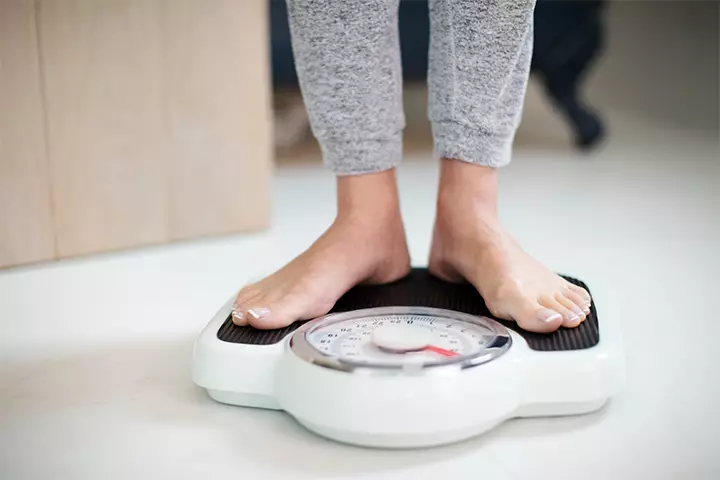
Image: IStock
- Improved digestive health: Its total fiber content is higher than quinoa, flax seed, and amaranth (8). Regular consumption of chia seeds could support healthy digestion by regulating the bowels and avoiding gastrointestinaliRelated to conditions concerning the digestive system issues (9).
- Enhanced gut microbiotaiMicrobial population inhabiting the gastrointestinal system : An in vivo study supported the use of chia seeds in a regular diet as it may enhance intestinal microbial growth. The seeds may also improve mineral absorption. Besides, it will help in the optimum functioning of the digestive system (10) (11).
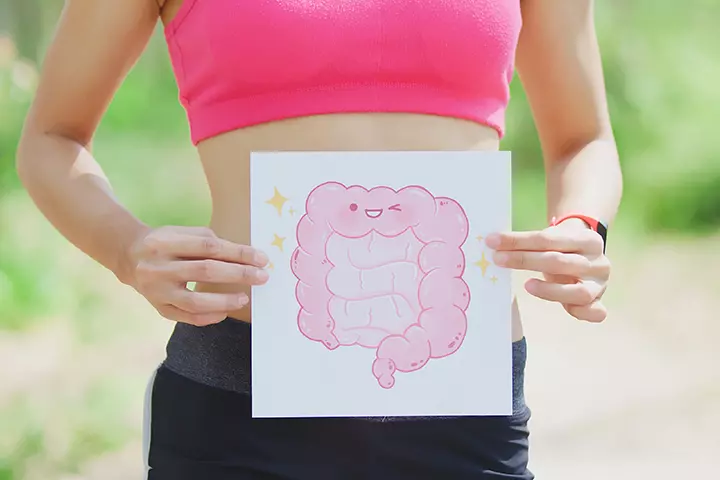
Image: IStock
- Bone health: High-quality proteins and PUFA may have positive effects on bone health. Calcium and potassium are also vital for bone health (12) (13).
- Immunity: Antioxidant foods influence immunity. Several studies show that chia seeds are a power pack of antioxidants that could reduce the risk of chronic diseases, such as diabetes, and also support healthy infant growth (14).
- Brain health: Essential fatty acids, such as DHA, are believed to enhance cognitive function (15). Some research studies show that chia seeds may help reduce physiological stress (16). The regular consumption of chia seed oil by feeding moms might enhance the total DHA levels of breast milk (17).
- Chronic inflammation: Mothers sometimes experience chronic inflammation. Chia seeds could help in such cases due to their strong anti-inflammatory effects (18).

Image: Shutterstock
- General health: Research studies suggest that regular consumption of chia seeds may help lower triglycerides, blood cholesterol levels, and blood pressure. This will help keep cardiovascular health in check (19). Chia seeds also help control blood sugar levels after a meal. All these benefits are attributed to the omega-3 and soluble fiber content of chia seeds (6).
These benefits might also be passed on to the nursing baby through breast milk.
Probable Side Effects Of Chia Seeds When Breastfeeding
Chia seeds seldom cause any serious health complications. However, be observant of the following side effects.
- Gastrointestinal disturbance: Fiber rich foods like chia seeds may cause diarrhea, bloating, flatulence, and intestinal gas in some mothers.

Image: IStock
- Possible drug interaction: Excess consumption of chia seeds may cause unfavorable interactions with drugs meant for blood pressure and blood thinning (20).
- Allergy: Proteins in chia seeds may cross-react with potential allergens found in other seeds and foods (21).
Precautions To Take While Consuming Chia Seeds When Breastfeeding
Following are some precautions that you might want to take (6):
- Buy organic chia seeds from a reputed store to be sure of its quality.
- If you have gastrointestinal issues or food allergies, consume the seeds after talking to your doctor.
- Avoid eating the seeds with the food to which you are allergic.
- Consume in moderate amounts.
 Caution
CautionIt is good to consult a nutritionist or a doctor, especially if you have any medical condition or are on medication.
Ways To Include Chia Seeds In Your Diet
Chia seeds can be considered as a replacement of oily fish, which are consumed for their high-quality protein and good PUFA (polyunsaturated fatty acid) content. Since it has easily digestible plant proteins, it is a perfect choice for vegan mothers.
- Chia seeds can be eaten after soaking in water, or the soaked seeds can be added to various dishes. Sprinkle ground or whole chia seeds on cereal, yogurt, or porridges.
- Chia seeds are absorbent and develop a gelatinous texture when soaked in water. This quality of chia seeds can be used to make several smoothies and cereal dishes.
- You can also try sprouting the seeds and adding them to salads, sandwiches, and other dishes.
- Chia seed oil can be used for making salad dressings and sauces. Besides, it is gluten-free and thus is ideal for nursing mothers who have celiac disease.
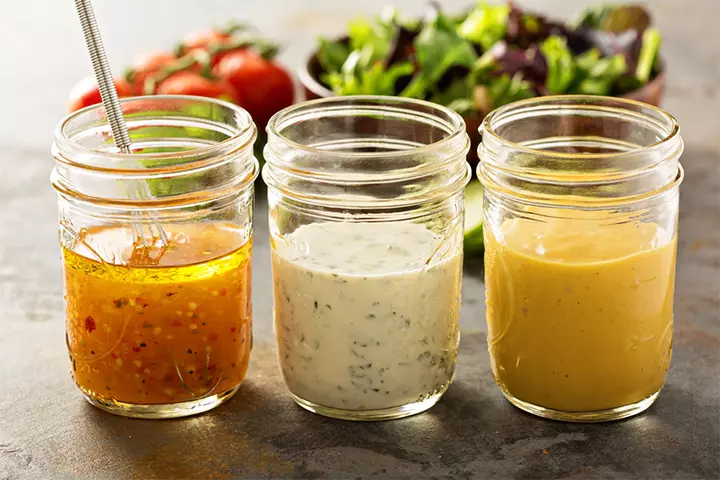
Image: Shutterstock
- Dry chia seeds powder can be prepared and used as a thickener for soups. It can also be used as an egg replacement. For replacing one whole egg, add a tablespoon of chia seeds with three tablespoons of water.
- Chia seeds can also be added to non-vegetarian dishes. Research shows that when added to animal diets, chia seeds can reduce the saturated fatty acids and serum lipids content of the animal products (14).
Chia Seed Recipes For Breastfeeding Mothers
These recipes are packed with nutrients and can help support breastfeeding moms. They’re easy to make and tasty, giving you a quick energy boost when you need it most.
1. Chia seed smoothie
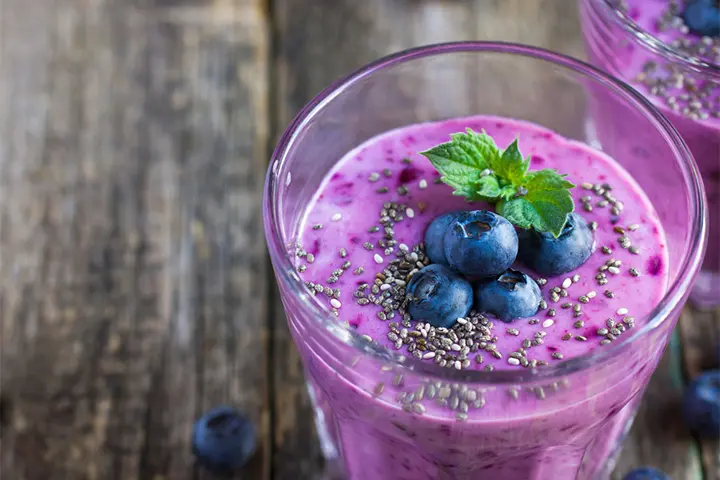
Image: Shutterstock
Ingredients:
- 1 banana
- 100g Greek yogurt or hung yogurt
- 60g berries (raspberries or blueberries)
- 1tsp roasted chia seeds
How to make:
- Put all the ingredients in a blender.
- Blend until smooth.
- Pour the smoothie into a tall glass.
- Serve chilled.
2. Chia seed energy bars
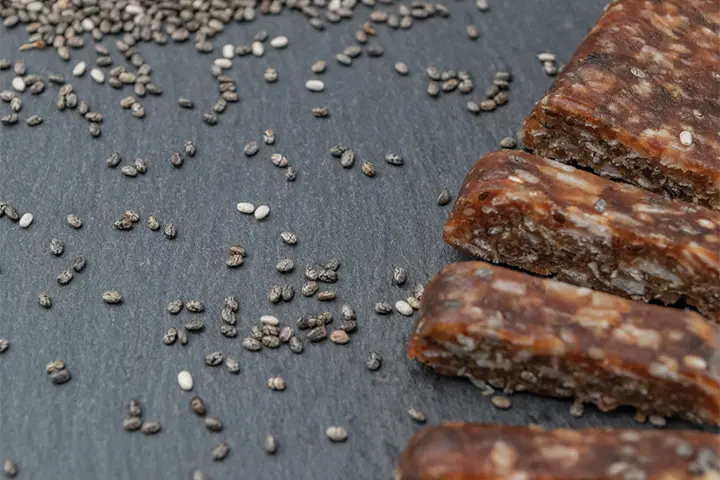
Image: Shutterstock
Ingredients:
- 1 1/2 cups rolled oats
- 1/2 cup cooked quinoa, cooled
- 1/4 cup flax meal
- 3tbsp chia seeds
- 1/2 cup dried fruit or nuts
- 1 large egg white
- 1/2 cup honey
- 1/2 cup peanut or almond butter
- 1/4tsp salt
- 1tsp cinnamon
How to make:
- Preheat the oven to 325°F.
- Grease or line an 8″ x 8″ pan.
- Mix oats, quinoa, flax meal, chia seeds, dried fruit, and egg white in a bowl.
- Warm the honey, nut butter, salt, and cinnamon in a pan. Stir until well mixed, but don’t boil.
- Pour the warm mixture over dry ingredients. Mix well.
- Press the mixture into the pan.
- Bake for 25 minutes until the edges turn golden.
- Let cool completely before cutting it into squares.
Frequently Asked Questions
1. Does chia seeds increase breast milk?
Chia seeds are iron-rich foods, believed to promote breast milk supply and are also good calcium sources and protein sources along with fats – all of which are essential for breastfeeding mothers. A simple way to include them into your diet is with your cereal, fruits, and yogurt, or even in smoothies (22) (23).
2. Is it okay to eat chia seeds without soaking them?
You may eat chia seeds previously soaked in water or served with moist food, such as oatmeal or yogurt. Avoid consuming dry chia seeds by themselves (24).
3. What is the best time to take chia seeds?
Lilly Hubschman-Shahar, board-certified lactation consultant from Columbia, Washington, says, “There is no specific time when one should or should not eat chia seeds unless it is recommended by their healthcare team. Many individuals prefer to eat chia seeds in the morning as they expand and contain protein, helping the individual feel fuller for longer.”
4. Can chia seeds help reduce postpartum depression and anxiety in breastfeeding mothers?
Although chia seeds are a good source of DHA, essential for brain health, no direct scientific evidence links chia seeds to reducing postpartum depression or anxiety.
5. How can chia seeds help in maintaining healthy skin and hair during breastfeeding?
Chia seeds are rich in omega-3 fatty acids, antioxidants, and minerals such as zinc and magnesium, which are crucial in maintaining healthy skin and hair (25).
If you are considering the consumption of nutrient-rich seeds while nursing, you may check the benefits of chia seeds for breastfeeding mothers and babies. Generally, consuming chia seeds in moderation when breastfeeding is safe. However, it might pose certain risks, especially for those who have allergies or gastrointestinal issues. Hence you must note the precautions and consult your healthcare provider before including chia seeds in your post-pregnancy diet.
Infographic: Chia Seed Recipes For Breastfeeding Women
Chia seeds are popular as a part of a healthy diet due to their nutritional benefits. So if you are looking for ways to include them in your breastfeeding diet, this infographic has three of the easiest and most delicious recipes to help you whip up some healthy goodness with chia seeds. Illustration: Momjunction Design Team
Illustration: Health Benefits Of Chia Seeds For Breastfeeding Mothers

Image: Dall·E/MomJunction Design Team
References
1. Chia: Superfood or superfad?; ACOS
2. Vegetarian Diets During Lactation; Eat Right; Academy of Nutrition And Dietetics
3. Seeds, chia seeds, dried (170554); Food Data Central
4. Melo D et al.; Chia seeds: an ancient grain trending in modern human diets.; National Center for Biotechnology Information
5. KnezHrncic M et al.; Chia Seeds (Salvia hispanica L.): An Overview-Phytochemical Profile, Isolation Methods, and Application.; National Center for Biotechnology Information
6. Chia Seeds; The Nutrition Source; Harvard T.H Chan
7. Tavares Toscano L et al.; Chia induces clinically discrete weight loss and improves lipid profile only in altered previous values.; National Center for Biotechnology Information
8. RahmanUllah et al.; Nutritional and therapeutic perspectives of Chia (Salvia hispanica L.): a review; National Center for Biotechnology Information
9. John M. Nduko et al.; Application of chia (Salvia hispanica) seeds as a functional component in the fortification of pineapple jam; National Center for Biotechnology Information
10. Bárbara Pereira da Silva et al.; Soluble Extracts from Chia Seed (Salvia hispanica L.) Affect Brush Border Membrane Functionality, Morphology and Intestinal Bacterial Populations In Vivo (Gallus gallus); National Center for Biotechnology Information
11. Loreto A. Muñoz et al.; Understanding the impact of chia seed mucilage on human gut microbiota by using the dynamic gastrointestinal model simgi®; Researchgate
12. Evelyn M. Montes Chañi et al.; Long-Term Dietary Intake of Chia Seed Is Associated with Increased Bone Mineral Content and Improved Hepatic and Intestinal Morphology in Sprague-Dawley Rats; National Center for Biotechnology Information
13. James H O’Keefe et al.; Nutritional strategies for skeletal and cardiovascular health: hard bones, soft arteries, rather than vice versa; National Center for Biotechnology Information
14. Inés Fernandez et al.; Impact of chia (Salvia hispanica L.) on the immune system: Preliminary study; Researchgate
15. Fernando Gómez-Pinilla; Brain foods: the effects of nutrients on brain function; National Center for Biotechnology Information
16. Matthias Nemeth et al.; Effects of Diets High in Unsaturated Fatty Acids on Socially Induced Stress Responses in Guinea Pigs; National Center for Biotechnology Information
17. Rodrigo Valenzuela et al.; Modification of Docosahexaenoic Acid Composition of Milk from Nursing Women Who Received Alpha Linolenic Acid from Chia Oil during Gestation and Nursing; National Center for Biotechnology Information
18. da Silva BP et al.; Effects of chia (Salvia hispanica L.) on calcium bioavailability and inflammation in Wistar rats.; National Center for Biotechnology Information
19. What Are Chia Seeds; Eat Right; Academy of Nutrition And Dietetics
20. Ch-Ch-Ch-Chia: Not Just A Potted Pet. Now It’s Health Food; NPR
21. Chia Seed Allergy And Cross-reactivity; American Academy of Allergy, Asthma & Immunology
22. Herbs and Foods to Increase Your Breast Milk Supply; University of Washington Medical Centre
23. Foods to Eat While Breastfeeding; Cleveland Clinic
24. Chia Seeds; Harvard T.H. CHAN
25. Ch-Ch-Ch-Chia!; University of Illinois
Community Experiences
Join the conversation and become a part of our nurturing community! Share your stories, experiences, and insights to connect with fellow parents.
Read full bio of Rebecca Koyf
- Dr. Lilly Hubschman-Shahar is the vice-president of Clinical Services at Nest Collaborative. At Nest, she is responsible for ensuring the standard of lactation care. Lilly has worked in maternal-child health for the past 14 years as a neonatal RN and NP and IBCLC. She did her Doctor of Nursing Practice from Arizona State University.
 Dr. Lilly Hubschman-Shahar is the vice-president of Clinical Services at Nest Collaborative. At Nest, she is responsible for ensuring the standard of lactation care. Lilly has worked in maternal-child health for the past 14 years as a neonatal RN and NP and IBCLC. She did her Doctor of Nursing Practice from Arizona State University.
Dr. Lilly Hubschman-Shahar is the vice-president of Clinical Services at Nest Collaborative. At Nest, she is responsible for ensuring the standard of lactation care. Lilly has worked in maternal-child health for the past 14 years as a neonatal RN and NP and IBCLC. She did her Doctor of Nursing Practice from Arizona State University.
Read full bio of Swati Patwal
Read full bio of Rohit Garoo
Read full bio of Anindita Ghatak













